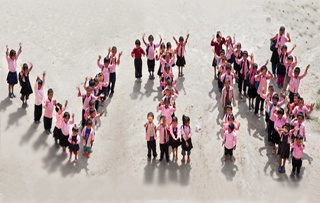
What is Child development?
child development labor in Nepal occurs in various areas and industries, with recent estimates published by the Nepal Labour Force Survey (NLFS) in 2008 suggesting a participation rate of 40.4% of all children in Nepal. Poverty, discrimination, ignorance, and harmful traditional practices expose children to hazardous conditions, jeopardizing their fragile childhood and, ultimately, their entire lives in the long run. Family circumstances mean that children engage in child development labor from a very young age or drop out of school before the end of their education, to help provide for the family’s income. This in turn deprives the children of marginalized communities in Nepal from developing life skills to allow them to seek a better life, with the cycle continuing from generation to generation.
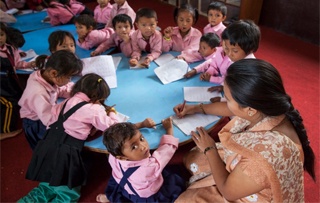
Poverty is the main barrier to accessing quality education and personal and child development in Nepal. Additionally, teaching quality within the education is low, often provided by untrained teachers. Children’s rights, creativity, and self-expression are not promoted in school or at home, meaning that children often lack the essential life skills and opportunities to pursue their interests, restricting their educational and emotional development.
What are the goals of the Child development program?
Our goal is to empower children and inspire them by providing them with basic life skills.
We believe that all children have the right to develop their personal life skills explore their interests and promote their innate talents. VIN’s child development program includes Children’s Life Skills Facilitation clubs that provide a platform for children to develop these skills and explore their talents. Since 2007, we have established eight children’s clubs in the Jipurphedi community with the ultimate goal that these clubs will become autonomously managed, providing active mechanisms to exercise and advocate children’s rights. Over the last five years, the children’s clubs have organized camps and provided children’s life skills, health, hygiene, and sanitation training, as well as creative and fun classes, such as writing, street drama, and games. VIN continues to review the children’s development program annually, supporting them in becoming self-managing and effective resources for child development.
What does a child development Volunteer do?
VIN seeks committed volunteers and interns to help in the children’s clubs of our working communities, bringing energy and creativity to inspire the children. You will help to facilitate the clubs’ activities, arranging interactive games, club meetings, outdoor activities, debates, and creative events. You will also be able to help organize and participate in the children’s camps.
During your volunteer placement, you will be based in Kathmandu. You will be accommodated with a Nepali host family, providing you with an insight into Nepali culture and immersing you in day-to-day Nepali life.
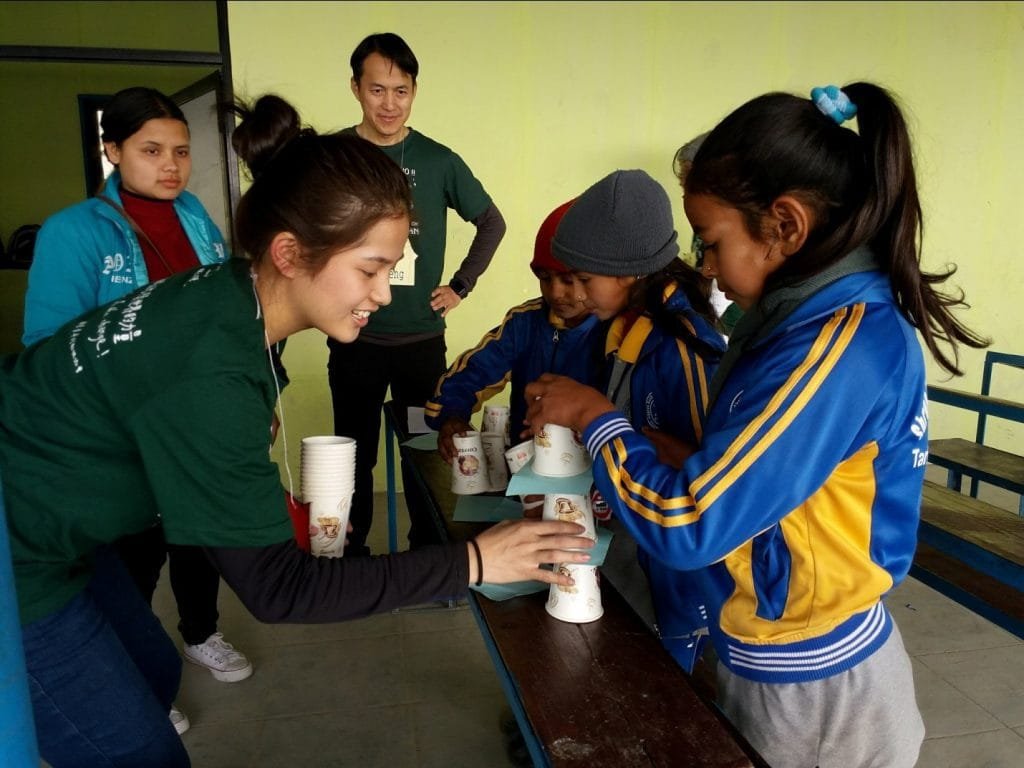
The Children’s Life Skills Facilitation volunteer will do one or more of the following activities:
- Conduct workshops on arts, crafts, games, singing, dancing, music, etc.
- Construct and deliver Life Skills training for child development, including leadership skills, decision-making, interpersonal communication, goal setting, managing feelings, self-esteem, active listening, team building, group facilitation, problem-solving, critical thinking, and creative thinking
- Provide creative writing training, such as poems, stories, and essays
- Undertake annual reviews of existing children’s clubs to strengthen their provision and participation rates
- Contribute to the annual publication of VIN’s magazine
- Construct and deliver children’s rights advocacy training for child development clubs
- Construct and deliver training on children’s club facilitation to the coordinator teachers
- Representation and participation in children’s clubs at national and international network events
- Research, develop, and present proposals on children’s club activities and fundraising
- Promotion of children’s rights to parents, youths, teachers, school management, and the children themselves
- Undertake training on Club and Event management, report writing and presentation, street drama, and puppet shows
Project Specific Skills
- Proficient in conducting workshops on life skills
- Familiarity with children’s rights
- Ability to give clear directives and a lateral thinker
- Good facilitation and presentation skills
- Basic computer skills
- Previous experience working or volunteering with children could be an added asset
Desirable/ Common Skills
- Excellent communicator with good interpersonal skills
- A team player with good workethics
- Time management and leadership qualities
- Adaptable, flexible and able to work under pressure
- Accepting of different ideas and culture
- Problem solving: always be part of solutions than part of a problem
- Creative
- Positive attitude
Requirements
- Gender: Female / Male
- Minimum Age: 18+ years (16-17 years old person can volunteer but need to present parents’/ guardian’s consent letter)
- Language:English (Intermediate)
- Educational:High School Graduate
Your Experience/ Setting
Upon your arrival at Kathmandu Tribhuvan International Airport (TIA), you will receive a warm welcome and be transported to your hotel or hostel. If you are already in Nepal before the start of your placement, we can make alternative arrangements for you. You will undergo a comprehensive two- to three-day induction program after arrival. This induction will provide valuable information about your project and general information about the Nepalese language, culture, health, safety, and security. It is also an excellent opportunity to connect with fellow volunteers and interns who can become your companions for sightseeing and a source of support throughout your volunteer placement.
During the induction period, you will be accommodated in a budget hotel or hostel arranged by VIN. However, most of the VIN experience involves living with a Nepalese host family. While this immersion is essential for a complete experience, we understand that it can be challenging as you adapt to a new culture and adjust to facilities that may be more basic than you are accustomed to. Don’t worry; all our host families have experience accommodating volunteers, although their English-speaking abilities may vary. Also, you will have 24-hour access to our staff members for support and assistance throughout your placement.
Volunteers will be assigned to one of VIN’s working areas, which include Tarakeshor Municipality in Kathmandu, Taluwa, Thulachhap, and Bhadaure in Okhaldhunga, and Okharpouwa and Kaule in the Nuwakot district. While at the working site, volunteers are requested to bring their lunch box, water bottle, safety gear, face mask, and any other essential belongings. We advise volunteers to dress comfortably and modestly, preferably with long sleeves. Please get in touch with us for guidance and support if you want to raise project funds or collect project-specific resources. This will help the community a lot.
Schedule and Commitment
You will work five to six days a week, up to six hours per day. You may propose your preferred time and hours; however, the working time period will be dependent on the institution you have been placed. A minimum of 2 weeks’ time commitment is expected of a volunteer. The longer you commit; the better impact you can make. You should be willing to commit a certain amount of your free time and energy, show a lot of commitment and be a good listener. You are expected to work constructively and co-operatively maintaining good reputation and standards at all times. Volunteer should abide by relevant security concerns and access procedures. Moreover, you should be receptive and positive to performance appraisal, advice and feedback. Throughout your placement, you will have the full support of VIN. Your safety is our highest priority.
Your typical day might look like this:
| 07:00-08:00 | Tea/Leisure Time |
| 08:00-09:00 | Breakfast/Brunch (Nepali meal – Daal-Bhaat) |
| 09:00-10:00 | Preparation for sessions/Visit to the student |
| 10:00-13:00 | Deliver training/workshops to students |
| 13:00-14:00 | Lunch (Packed lunch) |
| 15:00-17:00 | Deliver sessions/Extracurricular activities with children |
| 17:00-20:00 | Preparation for next day/Leisure time |
| 20:00-21:00 | Dinner (Nepali meal – Daal-Bhaat) |
You will receive a clear and concise on-the-job instructions, course of action, context of work and policies/strategies before your placement begins. You will be provided with ample of guidance and support throughout the placement with trainings / onboarding sessions incase necessary. You will be in a constant communication and regular check-in with the VIN volunteer coordinator. VIN aims to maintain a culture of continuous feedback between the volunteer supervisor at the placement to monitor the performance of the volunteer and ensure the project delivers desired outcomes.
In case of an emergency, you may contact one of our Volunteer Coordinators who will be available anytime for your assistance and support.
Click here to Learn more on how volunteering works
Mid and Long Term Volunteers:
2 weeks minimum stay- € 380
3 weeks – 480€
4 weeks – 580€ (after 4th week, for each additional week €95)
University Internships:
4 weeks minimum stay- € 680 (for each additional week – €105
Click here to Learn what’s included and excluded in our Fees Section
Click here to Learn recruitment process on how volunteering works
Our projects are open year-round, and our inductions begin on the first and third Mondays of each month. We would like to ask that volunteers arrive one day before the start of the induction. You can choose the duration of your participation based on your available time. However, so that you know, our volunteering placements are limited. We highly recommend booking your placement in advance to secure your placement. Click here to apply.

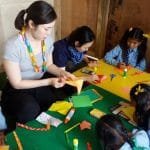
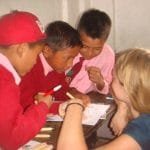
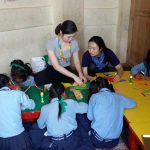
 Member of
Member of